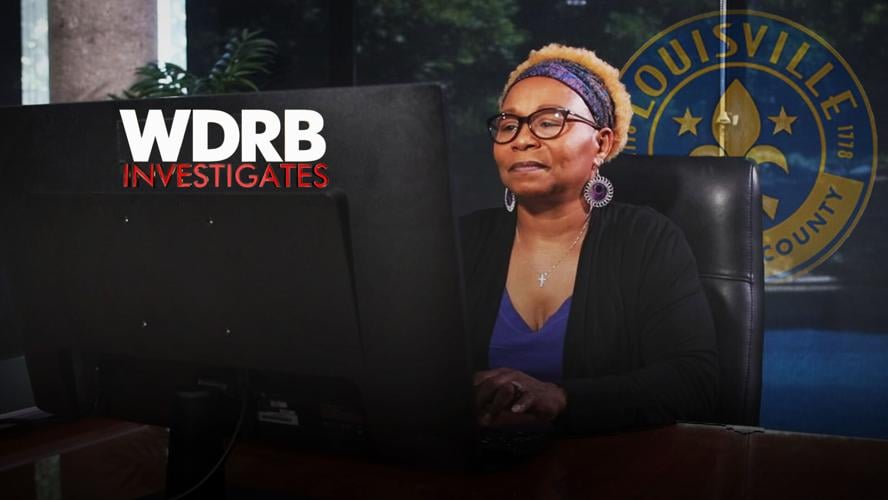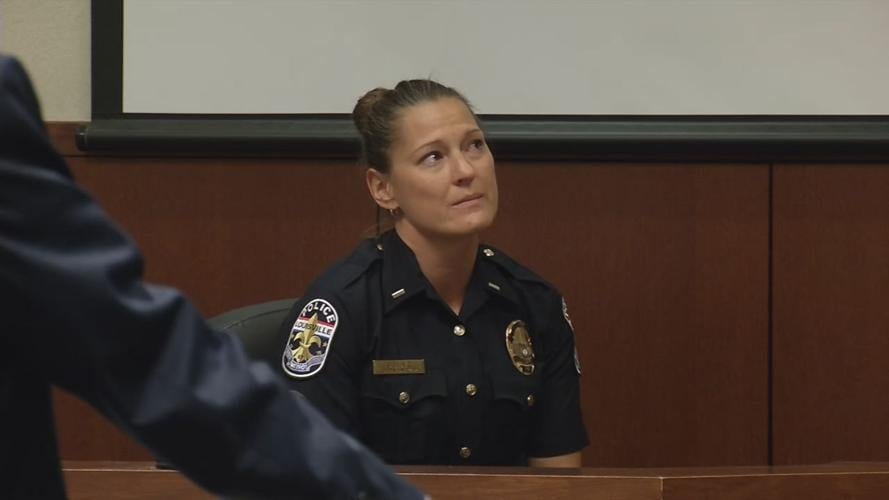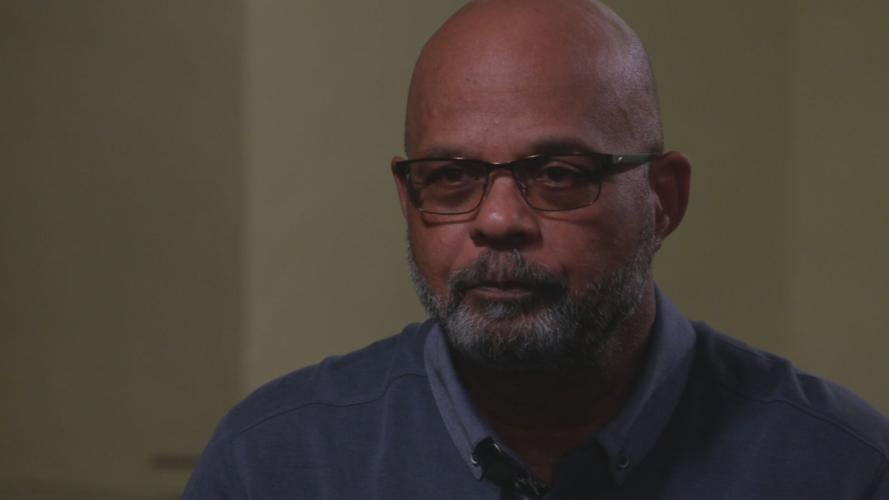LOUISVILLE, Ky. (WDRB) -- In January, Louisville Metro government paid MarySusan Ward, a former administrative assistant and human resources representative for the Metro Department of Public Health and Wellness, $1 million to settle a seven-year legal battle in which Ward claimed wrongful termination, retaliation and pay discrimination.
When she worked for the department in 2015, Ward said she noticed white employees receiving significant raises without new titles or responsibilities. She complained about an executive assistant getting a 10% pay bump before the end of her probation, followed by two more increases in one year.
Ward’s days at the department were numbered when she filed an HR complaint that year after supervisors declined her own request for a raise. After a contentious meeting with her supervisor and a colleague in 2015, Ward came in to work the next day to find her passwords not working. She was escorted from the building, a memory that still haunts her.
"I’ve been angry. I’ve been upset. I’ve experienced depression," Ward said. "Don’t treat me different because of the color of my skin."
Harassment, retaliation and discrimination are all common themes in lawsuits filed by current and former Louisville Metro employees against the city, resulting in significant costs to taxpayers for settlements, according to a review of city records related to employment litigation.
The review reveals at least 14 employment-case payouts since 2017 costing taxpayers nearly $3.5 million.
WDRB’s review of employment-related settlements follows our reporting showing police misconduct issues have cost Metro taxpayers nearly $40 million since 2017. The rise in settlements and jury awards resulted in Metro government losing its excess-liability insurance coverage in 2021, meaning more costs to taxpayers in the future. Mayor Greg Fischer’s office repeatedly denied a request for a sit-down interview with Fischer for that story.
Louisville is self-insured but the city also pays into a trust fund set up for city agencies to pay large legal damages. For settlements larger than $500,000, the city pulls money from the Louisville Area Governmental Self-Insurance Trust (LAGIT), which provides up to $2 million in coverage. The excess insurance coverage helped offset the cost of multi-million dollar payouts like the $12 million paid to the family of Breonna Taylor after LMPD officers killed her in a raid. Now, that safety net is gone.

LMPD Lt. Jill Hume testifies in court in Louisville, Ky., on Oct. 3, 2019.
Two of the more expensive employment-related cases also relate to Louisville Metro Police. A jury awarded Lt. Jill Hume $1.2 million in a sexual harassment case in October 2019. Hume alleged in a 2017 lawsuit that LMPD mishandled the investigation that involved her receiving a picture of a man "holding his erect penis and testicles."
A jury awarded former LMPD Maj. Jimmy Harper $300,000 in a whistleblower lawsuit in 2017. Harper claimed he was demoted to lieutenant because he expressed concerns to Fischer about how former LMPD Chief Steve Conrad was running the department.

Former LMPD Maj. Jimmy Harper
Ward’s case illustrates the changing climate regarding Metro’s legal liabilities.
In 2018, a jury awarded Ward, the former health department administrative assistant, $850,000 for the embarrassment and mental strain she endured at the Metro health department. But the verdict was overturned on appeal. Four years later, Metro government decided to settle with Ward for an even higher amount instead of retrying the case.
"The difference from when we won the first verdict and when we were going to try the case a second time was the Breonna Taylor killing had started a really important conversation in our city," said Robyn Smith, Ward’s attorney. "People weren’t as skeptical about this city having problems in its institutions."
Smith believes city decision makers realize that battered public trust has made juries less sympathetic to Metro government, and thus, more likely to settle cases.
Metro government’s legal strategy is "determined by counsel on a case-by-case basis," a spokesperson for Fischer said in an email.
Human Resources audit shows problems
Metro Louisville Human Resources received the lowest score possible in an April 2022 audit rating inadequate for internal controls. The review focused specifically on how complaints against non-union employees are handled.
Auditors found the agency had no written process or guidelines in place on how to investigate an employee complaint about management or directors. The audit also revealed prolonged HR investigations and documentation lacking. For example, only four of eight investigations reviewed in a 13-month period were complete, according to the audit, and documents telling the person who complained about the outcome were unavailable.
"We have taken great steps to take this seriously," Louisville Metro Assistant Director of Human Resources Adrienne Henderson said during a May hearing of the Metro Council Government Oversight Committee. "We’re really trying to get better training for our people."
The May hearing exposed how deep the flaws run. Henderson told council members Metro HR only had one compliance investigator in prior years despite employing about 6,000 people in all. That meant some investigations were kicked back to the city agency or department from which they originated, resulting in supervisors handling complaints related to their own department.
During the hearing, Council President David James asked whether departments could effectively "cover up what’s going on actually" within their shops.
"They could," Internal Audit Director Mary Porter acknowledged.
Orlando Smith said managers did investigate themselves with complaints in the Louisville Metro Parks and Recreation Department.
"The hostile work environment is rampant at parks and every level of metro government has been notified of this," Smith said in a February hearing of the Council Government Oversight Committee. "It has been swept under the rug from the lowest level supervisor to the director of human resources."
WDRB obtained records showing workers complaining about racist supervisors targeting, harassing and retaliating against minority workers since 2019.
In one instance, documents show a supervisor outed a worker's HIV status and shortly thereafter received a promotion. Another complaint tells how supervisors referred to one parks facility as the penitentiary referencing the number of black employees who work there.
"No one should have to endure that while they're at work," Metro Louisville Chief of Community Building Keith Talley said." I can't fix things overnight. No one can."

Louisville Chief of Community Building Keith Talley (WDRB photo).
Talley took on the parks department as one the agencies he oversees when he became an executive member of Fischer’s cabinet in October 2021. He said he met with all parks employees and required department wide equity training. His goal is to change the attitudes, the environment and the culture in the parks department.
"The first thing I did was acknowledge that this is not a perfect world we live in," Talley said. "I also told them that from my point of view racism, harassment and that type of disrespect would not be tolerated in the workplace. I cannot keep you from being racist but I can keep you from being racist at work."
The internal audit repeatedly warned the shortcomings investigating management put the city at "potential legal risk." At least two former parks employees have lawsuits pending against Metro.
"Disrespect and discrimination will not be tolerated; that is made perfectly clear to our entire management team," Margaret Brosko, Metro’s interim Director of Metro Parks and Recreation, told the council oversight committee in May.
Henderson said Metro HR fully embraced the city audit and has started implementing the recommended changes, which include revising standard operating procedures and guidelines for investigations, improving training for investigators and providing the results of investigations to the complainants and their directors.
Though Metro government never admitted fault in her case, Ward feels vindicated. She made about $15 an hour working at the health department and at first, would have settled for getting her job back. Seven years later, she received $1 million.
"Money talks," she said. "People are getting tired of being mistreated and walked over. ... Treat your people right."

MarySusan Ward earned a $1 million settlement from Louisville as part of a racial discrimination lawsuit in 2022.






